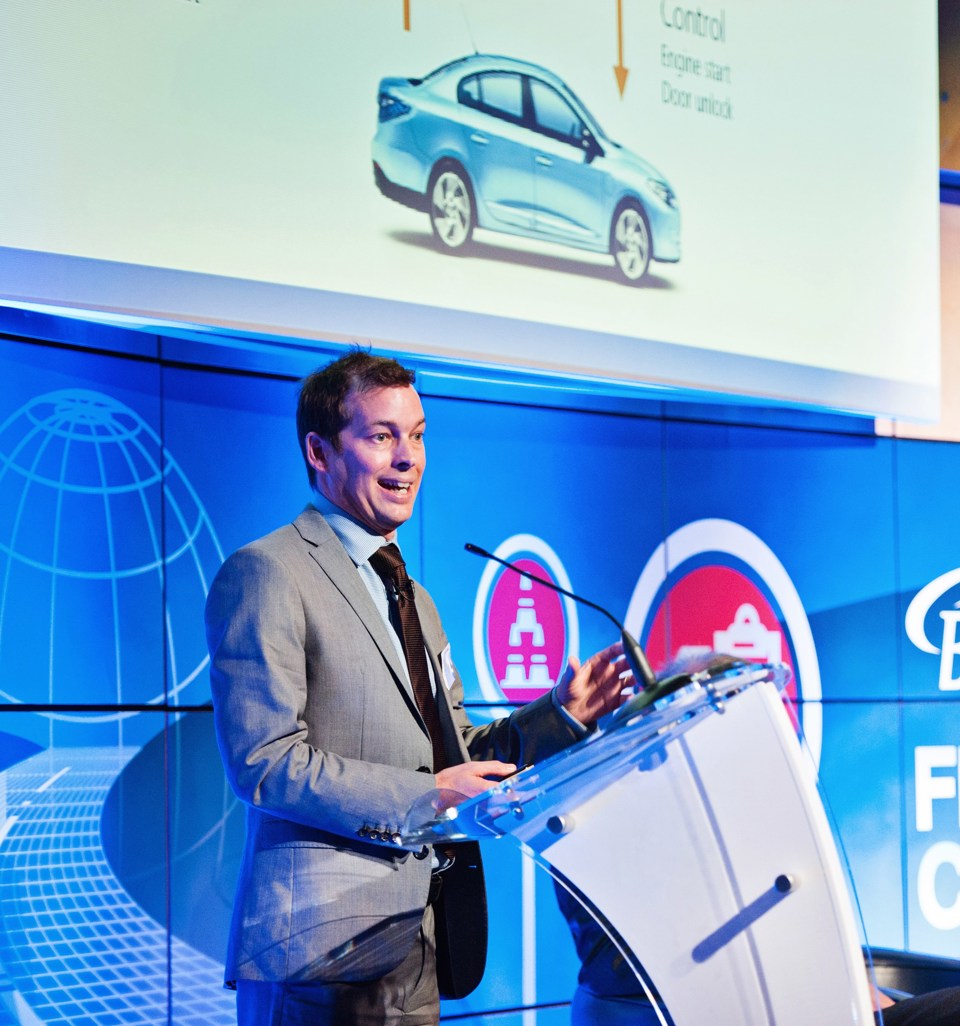Fleet managers have been asked to help reach an agreement with manufacturers over data sharing from connected cars.
SBD Automotive, an automotive technology consultancy, invited delegates at the recent British Vehicle Rental and Leasing Association (BVRLA) Fleet Technology Conference to take part in a data access pilot to establish which car manufacturers fleet managers and leasing companies would want data from, what data they need, whether they would be willing to pay for the data and whether they would want the data in real time.
The company believes that manufacturers should be recognised as owning the data as they pay to collect and process it. Therefore they are unlikely to ever give it away for free and instead should monetise it – giving access to third parties such as fleets and leasing companies.
Lee Colman (pictured), head of connected car at SBD, told Fleet News: “If third parties want access to that data, they first need to understand the potential value of it before they can have any kind of collaborative conversation with the car companies about accessing it.
“We’re encouraging the third parties to think about how they might use the data collected from the car to improve the life of the driver or the operational efficiency of the company.
“Then we want to bring those use cases into a discussion with the car maker themselves so we can enable or give justification for them to share their data. We want to make it attractive for car makers to share data.”
But the BVRLA believes that vehicle owners should control the data and has launched its own data principle guidelines to help members when negotiating with manufacturers over data use and control.
Gerry Keaney, chief executive of the BVRLA, said: “Our members felt that fleet operators are buying 50% of the new cars in the UK each year so we have a say and we have a view on how that data should be used, authorised and who should agree to the data being collected.”
The issue of data ownership and protection has led to a number of leasing companies refusing to sign the terms and conditions for the latest connected services.
But Colman said not utilising connected services will lead to a lose-lose scenario where manufacturers, owners and drivers all miss out on the advantages connected services offer.
Often when data sharing consent is removed, all the connected services in that vehicle will fail to work and that can include traffic data, sat-nav updates and service notifications.
Connected cars can generate a wealth of data that is useful to fleet managers including location, speed and vehicle condition. They also offer convenience such as remote tracking and vehicle access.
Many fleets are installing third party telematics systems to gain these services but connected cars already have the technology in place to relay some of that information.
BMW has agreed to share service maintenance and repair data with leasing companies following its own successful pilot.
SBD’s long-term plan involves an independent aggregator being used to collect all the data from connected vehicles and distribute it to the relevant parties. The reason for this is due to the complexity of each manufacturer’s data systems, which all operate on different platforms.
By using an aggregator, fleets will receive the same relevant data through the same portal regardless of vehicle manufacturer.
Even if data sharing can be harmonised, there are still legal considerations for fleet managers. Any data deemed personal, and that could be a sat-nav entry or a Vehicle Identification Number (VIN), cannot be used without the express consent of the vehicle user – meaning manufacturers will need consent from drivers before sharing the data and future fleet policies will need to include data usage clauses to benefit.
To find out more about the data access pilot contact Lee Coleman at SBD Automotive.




















Login to comment
Comments
No comments have been made yet.